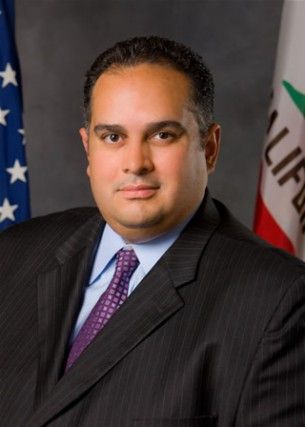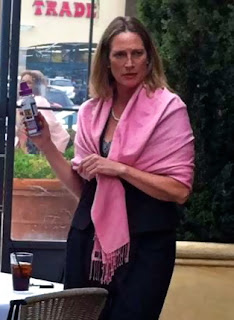Democratic activists hoping for big gains in the California legislature this year were dealt a serious blow after campaign finance reports released last Thursday raised troubling questions about Assembly Speaker John Perez’s strategic priorities and the California Democratic Party’s ability to achieve a two-thirds majority in the State Senate and Assembly.
Democrats would have to pick up at least two more seats in each chamber to achieve the super-majority needed to pass revenue increases over the objections of a Republican minority.
Yet campaign finance reports reveal that Speaker Perez, Sacramento Democratic lawmakers and PACs donated hundreds of thousands of dollars to safe Democratic Assembly districts while virtually ignoring new “swing” districts or defending others against possible Republican pickups.
In the 10th Assembly District (Marin, D+35) Sacramento Democrats gave $80,600 to Mike Allen, an incumbent Assemblymember who moved into the open district when his existing district was carved up and reapportioned. This, even though Mr. Allen is running against two other Democratic candidates and no Republican opposition.
In the 50th Assembly district (Santa Monica, D+33), Perez and Sacramento Democrats donated $88,750 to Assemblywoman Betsy Butler, who moved north to the Democratic stronghold after redistricting meant she’d have to run in the new, more conservative 66th Assembly district (Torrance, D+3). Butler is running against Democratic candidates Torie Osborn and Richard Bloom, both long-time residents of the district. The lone Republican in the race, Brad Torgen, is not considered a viable candidate.
Records also show that most of these donations were given to Allen and Butler during a three-week period last December, and that many Democratic Assemblymembers who donated did not give money to any other Assembly campaigns. The timing suggests a coordinated and conscious effort from leadership to funnel money to these candidates at the expense of other candidates running in more competitive districts.
But as Butler and Allen enjoy the largess of their colleagues in Sacramento while running in districts so safe a Democratic corpse could win, two other candidates running in swing districts which could potentially lead to Democratic super-majorities enjoy no such protection.
In the South Bay, Torrance School Board member Al Muratsuchi became the Democratic candidate for AD66 after Betsy Butler left the district. Election experts consider the race highly competitive for Republicans, giving them the best opportunity in two decades to pick up a seat in that area.
However, not a single Sacramento Democrat, including both John Perez and Betsy Butler have yet to make any financial contributions to his campaign.
Even Democratic State Senator Ted Lieu, whose district overlaps much of AD66, gave $1,000 to Butler, but nothing so far to Muratsuchi.
Additionally, while PACs – including the Professional Engineers in California Government, the State Building & Construction Trades Council and the California State Council of Laborers – gave over $300,000 to Butler and Allen, many of them presumably at Perez’s direction, Muratsuchi received only $11,900 in PAC money, including $1,000 from the California League of Conservation Voters – $6,800 less than they gave to Betsy Butler.
Sacramento’s indifference means Muratsuchi has had to loan his campaign $45,000 to defend the new South Bay Assembly seat against two Tea Party candidates, Nathan Mintz, who ran and lost a close race against Butler in 2010, and Craig Huey, who ran an unsuccessful $500,000 self-financed congressional campaign against Janice Hahn last year.
In the Central Valley, where termed-out Assemblywoman Cathleen Galgiani is running for Senate District 5 (Stockton, D+4), only one Sacramento lawmaker, fellow Democratic Assemblymember Kevin De Leon, contributed to Galgiani’s campaign.
Galgiani has $140,000 in cash on hand while her two Republican opponents, Assemblymember Bill Berryhill and former County Supervisor Leroy Ornellas, each have twice that amount.
Galgiani represents much of the district now and is considered a popular moderate. AroundTheCapitol.com reports the race is “likely the bellwether Senate district for 2012….Galgiani came out as gay to the Stockton Record on November 1, and will be running in a district that voted 64% in favor of prohibiting same-sex marriages.”
If elected, Galgiani would be the first openly gay legislator elected from a Central Valley district.
Taken in their entirety, campaign finance records, along with reports of political maneuvering, clearly and consistently demonstrate Speaker Perez and Sacramento Democrats are prioritizing the reelection of “incumbent” Assemblymembers in safe, Democratic districts over obtaining a two-thirds majority in the legislature in 2012.
Political insiders will claim this just isn’t true, that Sacramento’s strategy will change after the June primaries, focusing less on incumbents and more on flipping swing districts.
However, even if accurate, considering California’s new top-two election rules, it’s a deeply flawed strategy.
In the case of both AD66 and SD05, there’s no guarantee Muratrsuchi and Galgiani will survive a June primary and make it to November. And even if they do, their well-funded opponents will have already had a six-month head start to rip the Democrats to shreds with negative mailers and media spots.
When the California Citizens Redistricting Commission upended the political landscape in 2012, it opened up a unique opportunity for Democrats, but only if we have the foresight and political will to take advantage of that opportunity. Now is the time to stop paying lip service about achieving a two-thirds legislative majority and actually do something about it.
Until that happens, we’re just kidding ourselves that we can fix what’s really wrong with California. The best we can hope for is triage.
As our convention convenes this weekend in San Diego, I hope the delegates, activists, candidates and politicians assembled will take a hard, cold look at how the political landscape is shifting beneath our feet.
These issues are more important than any single election or candidate, they go to the very heart of what it means to be a Democrat in California in 2012.
UPDATE:
State Senator Ted Lieu responds:
Re: My $1000 contribution to Betsy Butler’s committee. As you know, I have not endorsed in the race. The contribution was made in April 2011, months before the first draft of Assembly maps were released, and months before Betsy Butler announced where she was running. In early fall, my Ted Lieu for Senate 2011 committee was frozen due to the Kinde Durkee case.
Regarding AD 66, when the Kinde Durkee legal proceedings are resolved, I will contribute to Al Muratsuchi’s campaign. I endorsed him early and am helping him in a variety of other ways.
 Legislature Agrees to Deal with Governor, Set to Pass Soon
Legislature Agrees to Deal with Governor, Set to Pass Soon



